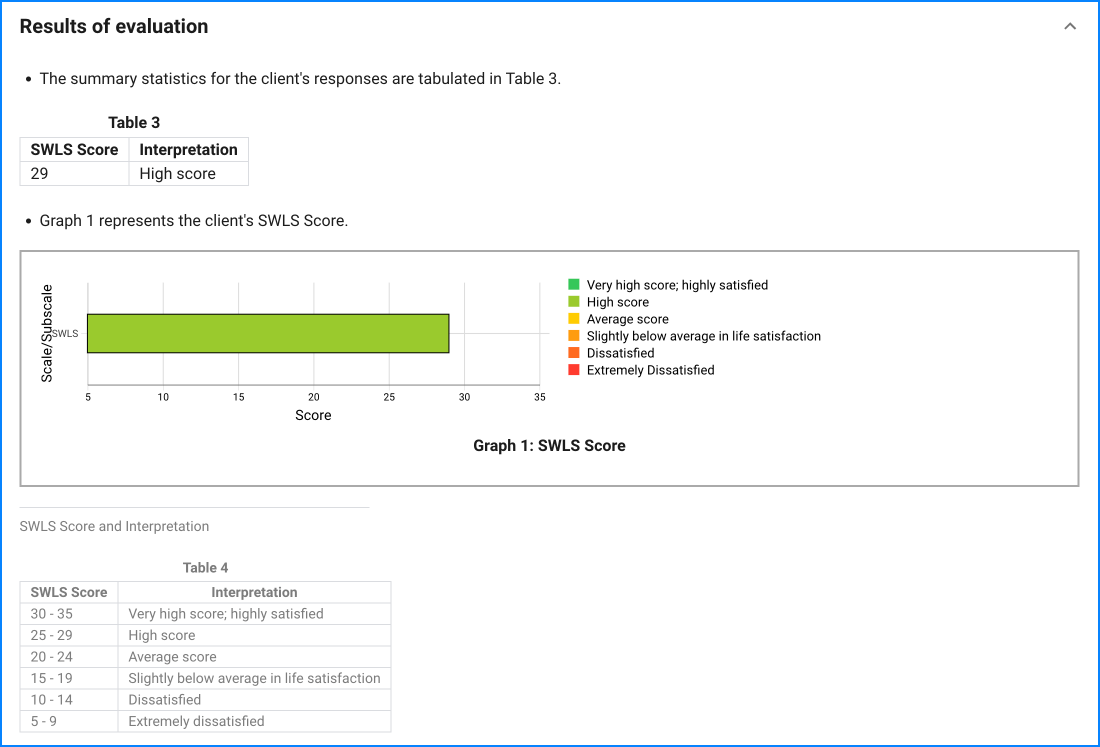Scores are calculated by assigning scores of 1, 2, 3, 4, 5, 6, and 7 to the response categories of ―Strongly disagree, ―Disagree, ―Slightly disagree, ―Neither agree nor disagree, ―Slightly agree, ―Agree, and ―Strongly agree, respectively. Add the score on each item to get the total score
The SWLS is a short 5-item instrument designed to measure global cognitive judgments of satisfaction with one's life. The Satisfaction With Life Scale (SWLS) was developed to assess satisfaction with the respondent’s life as a whole. The scale does not assess satisfaction with life domains such as health or finances but allows subjects to integrate and weight these domains in whatever way they choose.


